What else is there for an ordinary Russian to do during self-isolation and quarantine, how not to dream of the sun, summer, travel and not visit tourist sites? And they entertain the people sitting at home, as they can, arranging polls. So the portal "TurStat" decided to find out which names of rivers in Russia are the funniest. And we will tell you about these rivers - how they came to such a life - in detail.
10. p. Tukhlyanka, Sakhalin Region
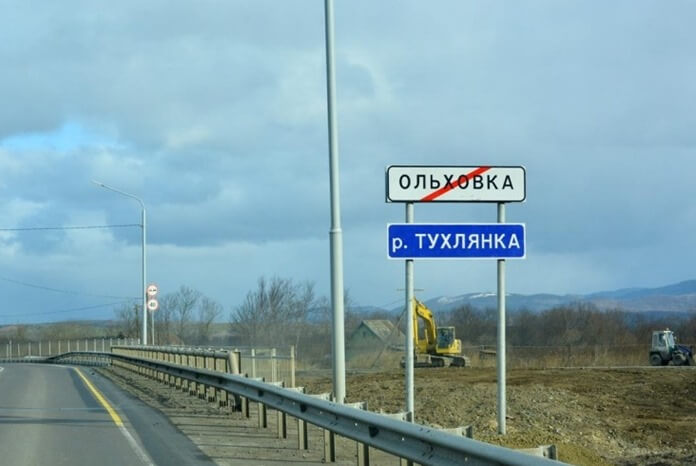 The Tukhlyanka River opens the top 10 Russian rivers with the funniest names. During the Japanese rule over the southern part of Sakhalin, it bore a more euphonious name - Masurao. Perhaps Masurao turned into Tukhlyanka when the town-forming enterprise of Uglegorsk, along which the river flows, began to discharge technological waters into it.
The Tukhlyanka River opens the top 10 Russian rivers with the funniest names. During the Japanese rule over the southern part of Sakhalin, it bore a more euphonious name - Masurao. Perhaps Masurao turned into Tukhlyanka when the town-forming enterprise of Uglegorsk, along which the river flows, began to discharge technological waters into it.
This plant, like many other enterprises in the Far East, was closed at the beginning of perestroika. However, the waters of Tukhlyanka did not become cleaner - as they poured wastewater into it, they continue to pour it. Just a couple of years ago, a local entrepreneur was fined for pouring dirty water from washing cars (he is holding a car wash) into the same long-suffering river.
9. p. Sal, Rostov region
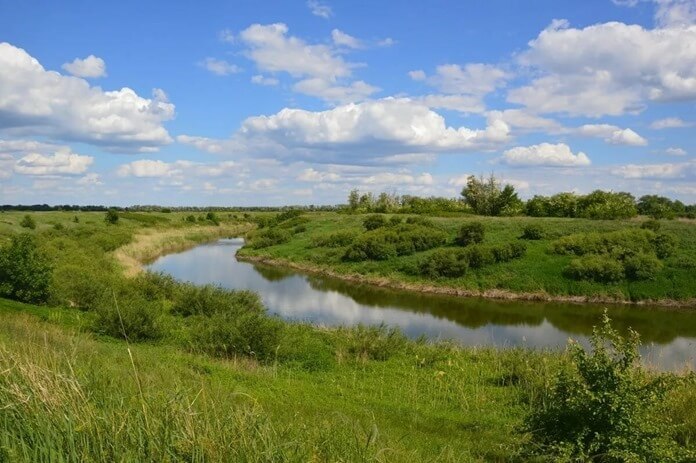 Although the name of the river is consonant with a product very high in calories and dear to the heart of Ukrainians, in reality everything is not so gastronomic. The river was named not by lovers of brisket, but by local Turkic tribes. In their language, "sala" means a tributary of a river. According to another version, the name of the river was given by the Kalmyks, because it flows from a ravine - "sala".
Although the name of the river is consonant with a product very high in calories and dear to the heart of Ukrainians, in reality everything is not so gastronomic. The river was named not by lovers of brisket, but by local Turkic tribes. In their language, "sala" means a tributary of a river. According to another version, the name of the river was given by the Kalmyks, because it flows from a ravine - "sala".
Sal looks quite plain - it is a small narrow rivulet, which, it seems, and a chicken can wade. However, it is unique in its kind, since the narrow water belt stretches for as much as 800 km!
8. p. Nyukhovka, Tula region
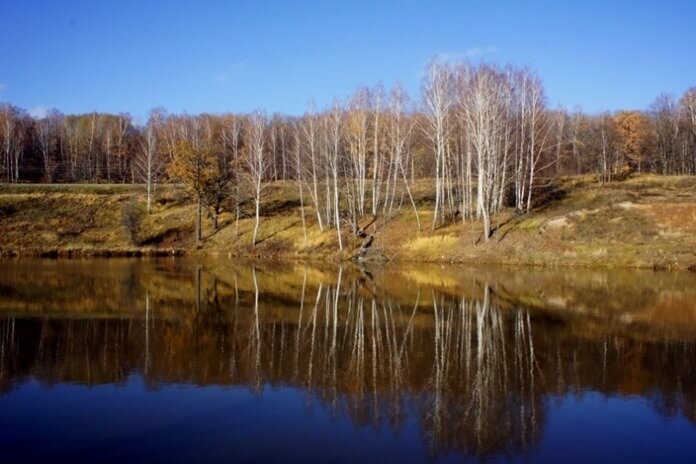 Many scientists believe that the names are a short form of a recorded legend about the people who once lived there. Perhaps the village of Nyukhovka got its name because of the specific nature of the people who inhabited it, who were very curious, loved to scout and, yes, sniff. So both the village and the river Nyukhovka became.
Many scientists believe that the names are a short form of a recorded legend about the people who once lived there. Perhaps the village of Nyukhovka got its name because of the specific nature of the people who inhabited it, who were very curious, loved to scout and, yes, sniff. So both the village and the river Nyukhovka became.
However, there is another version - that it was not the village that gave the name to the river, but the river to the village. After all, sometime in the 16th century in the Tula land there was not only the Nyukhovka River, which was distinguished by a strong, persistent smell, but also the whole Nyukhovsky Stan (in our opinion, a district). True, whether all this land exuded a peculiar aroma, history is silent.
7.p. Suchok, Tver region
 The Suchok River is one of the tributaries of the Volga. It flows from somewhere from the depths of the Moss bog and flows into the Volga near the town of Konakovo. Apparently, the people of Tver loved the name of Suchki very much, giving this name not only the river, but also the whole lake Suchkovskoye, where it carried its waters, as well as the village of Nikolskoye-Suchki located on it.
The Suchok River is one of the tributaries of the Volga. It flows from somewhere from the depths of the Moss bog and flows into the Volga near the town of Konakovo. Apparently, the people of Tver loved the name of Suchki very much, giving this name not only the river, but also the whole lake Suchkovskoye, where it carried its waters, as well as the village of Nikolskoye-Suchki located on it.
Only the river has reached our days. Both the lake and the village were flooded during the creation of the Ivankovskoye reservoir in 1937.Together with Nikolskie-Suchki, more than a hundred settlements were wiped off the face of the earth, including a rather large district town and part of the modern city of Konakovo.
6.p. Yavon, Novgorod region
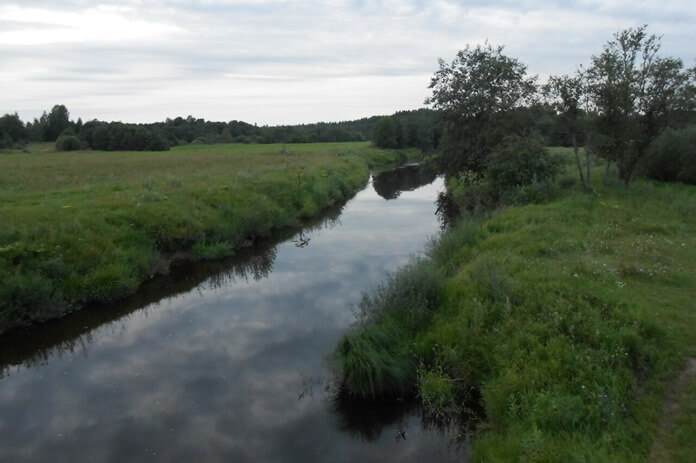 Although in our time the name of the river is associated with unpleasant things, it was once an ancient and honorable name, testifying to its high status. In ancient times, it was part of the Seligersky trade route, which connected the then center of trade, Mr. Veliky Novgorod, with the "lower" lands - the Vladimir-Suzdal principalities - and the main waterway of medieval Russia, the Volga.
Although in our time the name of the river is associated with unpleasant things, it was once an ancient and honorable name, testifying to its high status. In ancient times, it was part of the Seligersky trade route, which connected the then center of trade, Mr. Veliky Novgorod, with the "lower" lands - the Vladimir-Suzdal principalities - and the main waterway of medieval Russia, the Volga.
There were few roads in ancient times, so merchants used natural waterways. From Lake Ilmen they led ships along the Pole River, then along its tributary Yavoni, and then from Lake Veljo, from where Yavon flows out, dragged (in the literal sense of the word) boats to Lake Seliger. So the local Finno-Ugric tribes christened the river "Yavonya", which means "the river of goods receipt."
5. p. Mocha, Nizhny Novgorod region
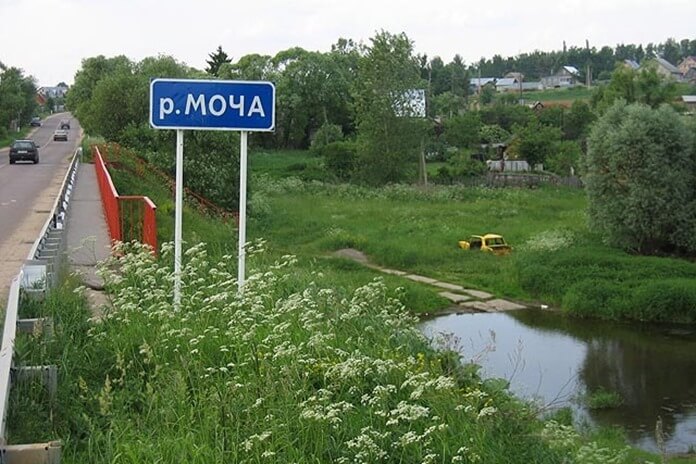 But this name is even less pleasant to the ear than the representative of the sixth place in the rating of Russian rivers with the funniest names.
But this name is even less pleasant to the ear than the representative of the sixth place in the rating of Russian rivers with the funniest names.
Unlike previous sufferers, whose unappetizing names were only the result of a sound coincidence, Urine is a word related to the liquid waste of the human body. It comes from the Proto-Slavic root moca, which means something wet, wet. The single root word is "mochaga", an outdated name for a swamp.
It seems that the ancient Slavs did not bother too much with coming up with names for the rivers. Wet and flowing? Hence, it is the most. This is how the rivers with the name Mocha appeared in the Orenburg, Nizhny Novgorod and Moscow regions.
4. p. Garbage, Samara region
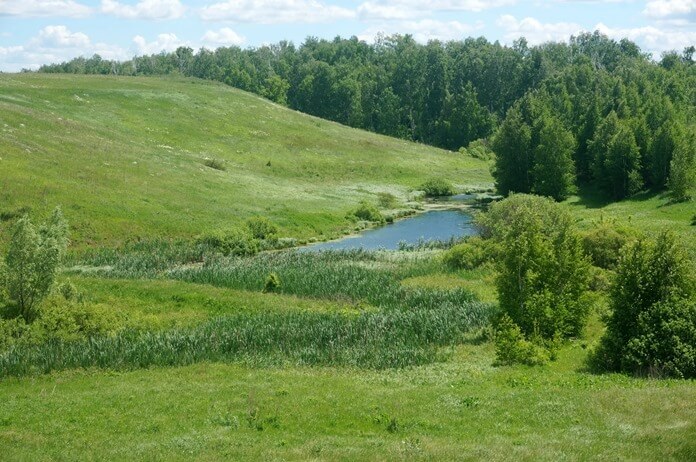 No, this is not a modern name, and it says absolutely nothing about the ecological state of the river. Scientists believe that the name of the river was given by the Finno-Ugric tribes who once lived on the territory of the Samara region. Then the Garbage sounded more like Muvorka - "mu" meant "land", and "thief" - a swampy place, a lake, an oxbow.
No, this is not a modern name, and it says absolutely nothing about the ecological state of the river. Scientists believe that the name of the river was given by the Finno-Ugric tribes who once lived on the territory of the Samara region. Then the Garbage sounded more like Muvorka - "mu" meant "land", and "thief" - a swampy place, a lake, an oxbow.
3.p. Malyavka, Ryazan region
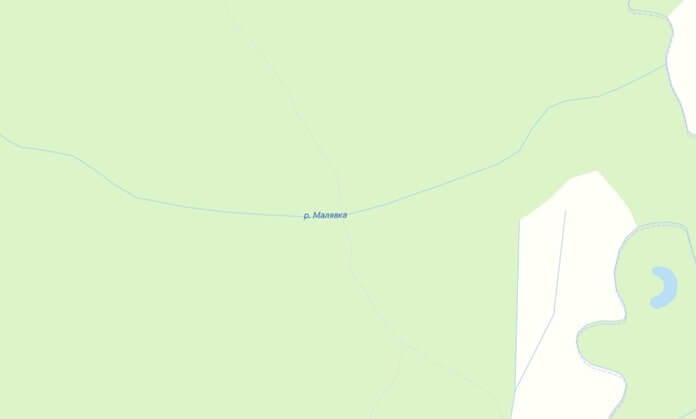 In total, there are more than 900 rivers and streams on the territory of the Ryazan region, the names of which are very bizarre. Well, how can you guess what, for example, Oka means? Or Tsna?
In total, there are more than 900 rivers and streams on the territory of the Ryazan region, the names of which are very bizarre. Well, how can you guess what, for example, Oka means? Or Tsna?
With Malyavka, everything is simple - it is really a very tiny river, which, merging with other rivers, carries its waters to the Oka and through it to the Volga.
2.p. Herota, Krasnodar Territory
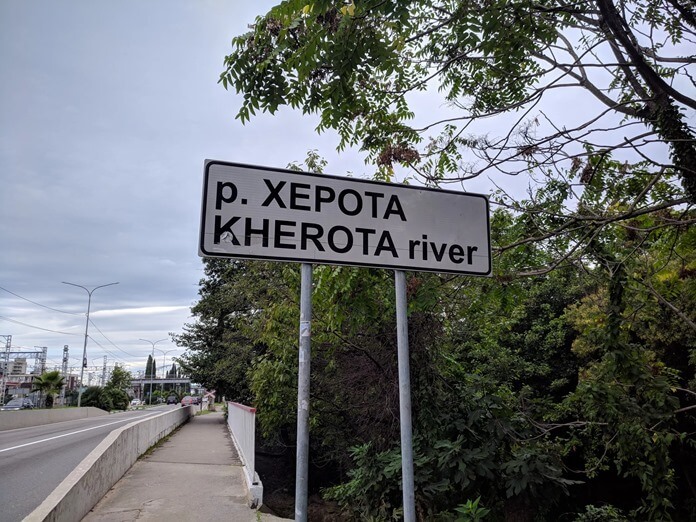 To the great regret of environmental organizations and residents of the city of Adler, this river now fully corresponds to its dissonant name. Most of all, it resembles a shallow muddy stream, the banks of which are tastefully decorated with pieces of fittings and household waste. True, she does not have to suffer for long (the length of the Herota channel is only 14 km).
To the great regret of environmental organizations and residents of the city of Adler, this river now fully corresponds to its dissonant name. Most of all, it resembles a shallow muddy stream, the banks of which are tastefully decorated with pieces of fittings and household waste. True, she does not have to suffer for long (the length of the Herota channel is only 14 km).
It is believed that the name of the river originates from two Abkhaz words - "ha" (meaning "village") and Aryuta - the name of a large Abkhaz family, whose descendants still live in Turkey.
It once sounded like "Kharyuta", then, with the light hand of a careless cartographer who fixed the river on maps at the beginning of the 19th century, it turned into "Horota", and from there it was not far from "Herota".
1.p. Little animal, Moscow region
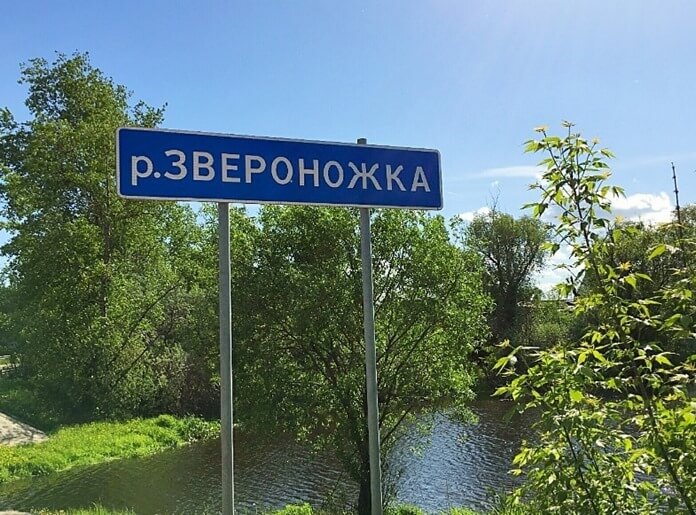 In the first place in the top 10 Russian rivers with the funniest names was the river, whose name seemed to come from a children's fairy tale. At the word "Little Animal", the imagination draws the most bizarre animals that once went there to drink ...
In the first place in the top 10 Russian rivers with the funniest names was the river, whose name seemed to come from a children's fairy tale. At the word "Little Animal", the imagination draws the most bizarre animals that once went there to drink ...
But reality, as usual, is rougher and more prosaic. Once the river was called “Out-of-the-box”, because it dug a very winding, “absurd” channel for itself. Or, because it had especially steep banks, and the locals, crossing it ford, lifted their legs high.
Agree that the word "Out of the way" in one breath and it is difficult to pronounce. So the name was rolled in for centuries, until it came to the present look, easily leaving the language.

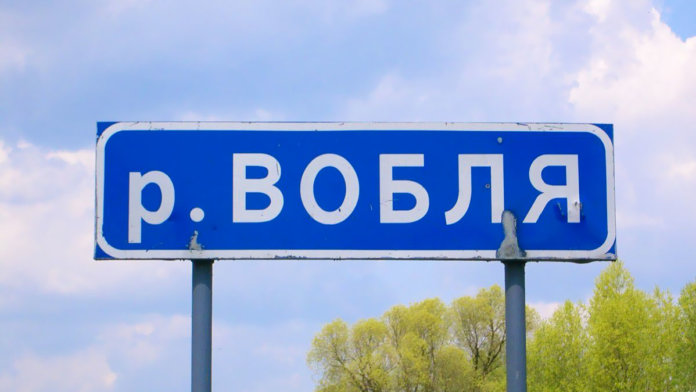
Kaluga region Vysa river
Chelyabinsk region
river "Uy" !!!
Rivers Ibeika, Yuyka and Nyukhalovka in the Omsk region
River Tretya Shchel, Krasnodar Territory))
There is also a river - Ublya!
Chumoyka river in Udmurtia
Kaliningrad region pissa river
Irkutsk region. River "Camel"
river Um, Tomsk region.
There would be more such names.
and next to the Voblya river, there is also a cafe with the same name))
The Voblya River flows through the Lukhovitsky district, not far from the village of Beloomut. Previously, there was such a word VOBLIT, i.e. to bleach. Women weaved canvases, and then they were bleached (voblya), laying on the banks of this river, therefore the river was named Voblya.